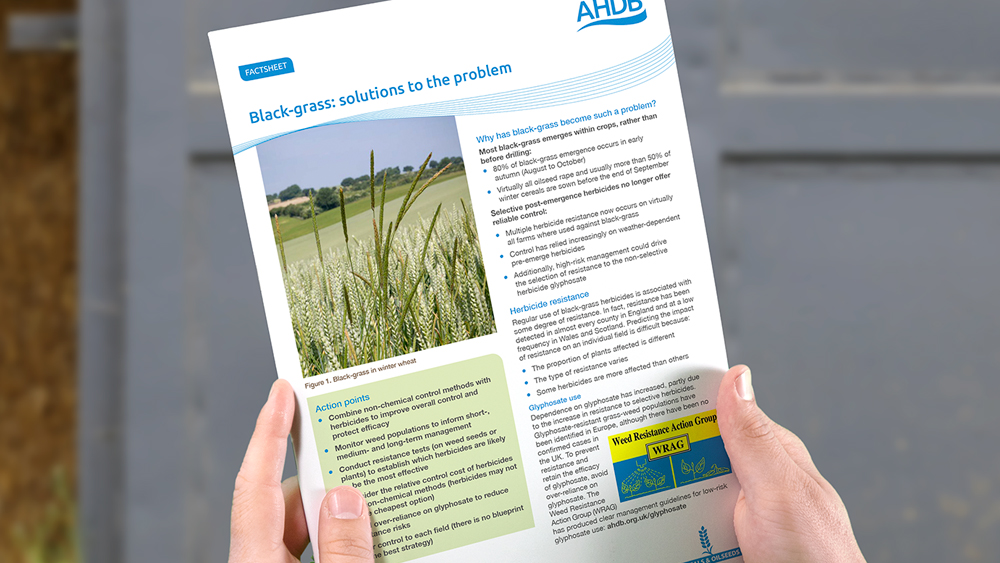- Home
- Knowledge library
- Wheat germplasm for enhanced competition against black-grass (PhD)
Wheat germplasm for enhanced competition against black-grass (PhD)
Summary
Black-grass (Alopecurus myosuroides) is the major weed species that affects UK winter wheat crops (Triticum aestivum). The weed has been favoured by a dominance of autumn-sown arable crops and changes to tillage systems. It has also developed resistance to herbicides.
At least 95% black-grass control is required to prevent populations increasing. A combination of non-chemical management approaches can deliver good levels of control, especially when combined with effective chemistry. However, a lack of understanding of crop-weed interactions, particularly below-ground, continues to contribute to the failure to combat black-grass infestations sufficiently.
Crops compete with weeds to varying degrees, potentially contributing up to 25% black-grass control, according to research estimates. Some species are known to be more competitive than others (e.g. barley is more competitive than wheat). Management choices also influence a crop’s ability to compete with weeds (e.g. high seed rates, narrow row spacing and good seedbeds).
Some varieties are relatively competitive, but this aspect is poorly understood with variation in field-level results. This lack of understanding constrains plant-breeding efforts and limits variety-selection decisions by farmers.
This PhD studentship project aimed to:
- Determine how and when black-grass gains its competitive advantages
- Assess and screen crop varieties for possible traits associated with competition (including root growth)
- Determine the competitive ability of crop varieties against black-grass
- Identify correlations between traits and competitive ability
The main hypothesis tested was that crop cultivars would vary in competitive ability due to differences in root growth.
The research observed that black-grass relies on increased root growth, faster winter growth and the longer winter growing season to accrue competitive advantages over winter wheat. However, barley cultivars (Hordeum vulgare) and landrace wheats with larger root systems showed increased competition against black-grass compared to elite wheats.
Variation in both competitive ability and root growth was observed in a range of crop varieties. Container and field trials confirmed controlled screen competition results are transferable to real conditions.
Overall, correlations were seen in root growth and competitive ability between crop cultivars, with increased root growth resulting in increased competition. However, within elite wheats this relationship was less clear. Clear correlations were observed between shoot and root production in winter conditions.
A novel, quick and simple screening system was developed to reliably assess cultivar competitiveness. This system can be used for further research on black-grass growth and crop competitiveness.
Further analysis on growth (e.g. early vigour and winter growth rate) may allow for the indirect selection of higher rooting cereal varieties with increased competitiveness against black-grass through increasing the ability to withstand biotic and abiotic stresses.
Ultimately, such analyses will improve crop breeding and generate information to help farmers identify more resilient varieties.
Also...
Wheat germplasm for enhanced competition against black-grass (short article, 2022)
At the 2024 Agronomy Conference, Jed Clark provided an update on his work. He has found variation in tolerance and suppression among crop lines, with rooting characteristics particularly interesting.
Watch the cereal genetics to battle black-grass presentation
Learn about a related, follow-up research project:


 Jed Clark, University of Leeds.JPG)
